
“Yes, Maggots”: SIL Refuses To House Hoarder In-Laws After They Lose Their Home
Interview With ExpertHaving continuous difficulty parting ways with possessions despite their value may be a sign of a mental health disorder. In some cases, hoarding may not have a noticeable impact on a person’s life, while in more severe instances it can greatly affect daily functions and even pose a threat to well-being.
This guy recently shared how his in-laws’ inability to farewell with their belongings made their home unlivable for the second time. With nowhere to go, his wife suggested they stay with them, but he quickly opposed, thinking of all the things that could go wrong if they did.
Scroll down to find the full story and conversation with licensed clinical psychologist and the owner of Advanced Psychology Services, Leslie Crea-Kammerer, PsyD., organizing specialist in ADHD, hoarding, and time management and productivity, Diane N. Quintana, and ADHD and hoarding specialist and certified professional organizer in chronic disorganization, Dr. Regina F. Lark, who kindly agreed to tell us more about the hoarding disorder.
Not being able to part with belongings can reach an extreme where a home is no longer safe to live in
Image credits: drunkjockey (not the actual photo)
Like what happened with this guy’s in-laws, whose home was condemned for a second time and they had nowhere to go, as he didn’t want to let them in his home
Image credits: YuriArcursPeopleimages (not the actual photo)
Image credits: AITA_Throwaway_66666
2 to 6 percent of the world’s population suffers from a hoarding disorder
It’s estimated that around 2 to 6 percent of the world’s population suffers from a hoarding disorder. This translates to about 158–474 million people having such a mental health condition globally in 2021.
The National Health Service describes this disorder as the storing of an excessive number of items in a chaotic manner, usually resulting in an unmanageable amount of clutter. “The items can be of little or no monetary value,” the website writes.
Hoarding becomes a significant problem when the amount of possessions starts interfering with everyday activities, relationships, and safety. “Some of the biggest signs are that the collections or behaviors are interfering with relationships, interfering with safety, or causing significant interference or problems with finances, being able to work, or being able to complete basic chores or tasks of daily life,” says licensed clinical psychologist and the owner of Advanced Psychology Services, Leslie Crea-Kammerer, PsyD.
Another indication of a hoarding problem is when spaces no longer serve their intended purpose, says organizing specialist in ADHD, hoarding, and time management and productivity, Diane N. Quintana. “For example, when the kitchen counters are so packed with things that the person has no place to prepare food, or when the bathtub is full of magazines so the person cannot bathe, when they can only sleep on a portion of the bed—you know there is a problem and that hoarding behaviors are present.”
People who hoard have a very hard time parting ways with their belongings, mainly because of fear
People who hoard have a very hard time parting ways with their belongings, mainly because of fear. “There’s a lot of fear… fear of waste, fear of needing something in the future, even though they can’t identify what the future would have to look like in order for this thing to be used. Cognitively, it’s difficult because the executive function part of the brain is really compromised. And research has shown that early trauma can precipitate hoarding behavior,” explains hoarding specialist and certified professional organizer in chronic disorganization, Dr. Regina F. Lark.
Crea-Kammerer adds that people overly accumulate things because they attach deep meaning to them or feel like they can get joy out of them in times of distress in their lives.
Unfortunately, such cumulative tendencies only get worse with age and often come in combination with other mental health conditions, which makes it harder for people to see it as a problem. Hoarding issues gradually develop over time privately, so they often go unnoticed by family and friends, fostering their inability to part ways with their possessions.
Some people who have this disorder are aware of it but feel reluctant to seek help because they feel shame, humiliation, or guilt about it. So it’s usually family and friends who can help them get better once they notice what their loved one is going through. It’s very important that they do, as a house brimming with clutter can be a dangerous safety hazard.
Image credits: DianaDitch_ (not the actual photo)
Throwing everything out isn’t going to fix hoarding behaviors
However, throwing everything out isn’t the first solution to a hoarding issue, even though it might seem like it. As they or someone else is sorting through their possessions, they might feel anxious, stressed, and uncomfortable, which can make them backtrack and rethink their decision to get better. The sudden surge of upsetting emotions can cause them to start buying and accumulating even more stuff.
“People can feel more pressure to keep items after having chosen to do so repeatedly before (a “sunk cost” fallacy). It can be difficult to “give up” on holding onto items after expressing so strongly to others that they needed them or that they had a special purpose; this can fuel those feelings of guilt and depression as well,” says Crea-Kammerer.
Therefore, it’s important to take it slow and make sure the person is feeling as comfortable with cleaning up as possible. “If the person with a hoarding disorder will allow the help, then proceed slowly. Let the person decide where they want to declutter first. Work for short periods of time on a specific task. Celebrate every time they are successful,” says Quintana.
In some cases, it might be beneficial to reduce the focus on hoarding behaviors and strengthen the relationship with the struggling person instead, says Crea-Kammerer. “This can be done in ways that are not related to the hoarding behaviors, such as scheduling weekly phone calls to tell them about their life or by continuing to invite them to events that are manageable and do not cause too much distress for everyone involved,” she explains.
“Nurturing more positive feelings and relationships can help to strengthen the person’s ability to regulate their emotions in general and tolerate the distress related to the hoarding behaviors in particular, and it can help fuel their motivation to make change.”
However, when hoarding behaviors start posing safety risks, loved ones can communicate their own feelings and limits using nonjudgemental language (this means avoiding saying “good,” “bad,” or unacceptable”), says Crea-Kammerer.
“Be ready to accept that the person who struggles with the hoarding behaviors may decline the request. Identify your realistic options for interacting with them (what you are able and willing to do with them, what you can offer, agencies or supports you can contact) and try to choose options that most align with your goals for the relationship. These guidelines from the Association for Behavioral and Cognitive Therapy (ABCT) can also be helpful for having a conversation when the person is ready to do so.”
Image credits: praboin1 (not the actual photo)
Most readers justified the author’s behavior
While some thought that he should have let the in-laws stay
Poll Question
Thanks! Check out the results:
My father was a hoarder. It's been almost a year since he died and I'm still cleaning up the mess he left behind in a 4/2 house and four detached sheds. So much stuff went to charity and thrift stores. The rest went in massively overfilled dumpsters. We still need at least one more massive dumpster to finish the job. His mess probably sped up my mother's death. Just say no to hoarders.
My father was a hoarder. It's been almost a year since he died and I'm still cleaning up the mess he left behind in a 4/2 house and four detached sheds. So much stuff went to charity and thrift stores. The rest went in massively overfilled dumpsters. We still need at least one more massive dumpster to finish the job. His mess probably sped up my mother's death. Just say no to hoarders.

 Dark Mode
Dark Mode 

 No fees, cancel anytime
No fees, cancel anytime 


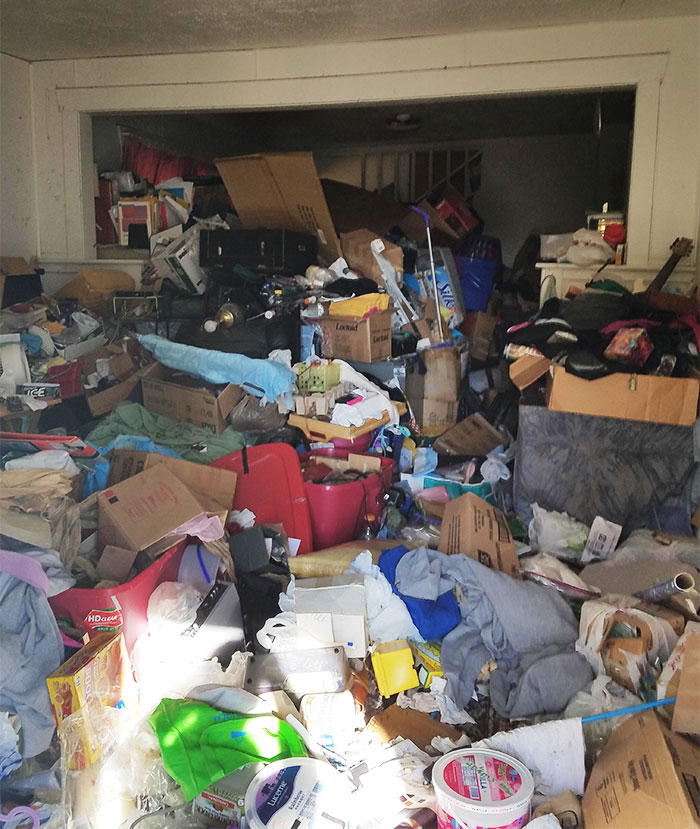



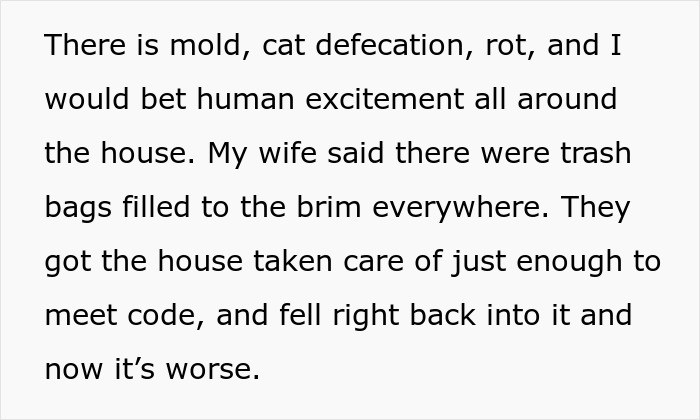

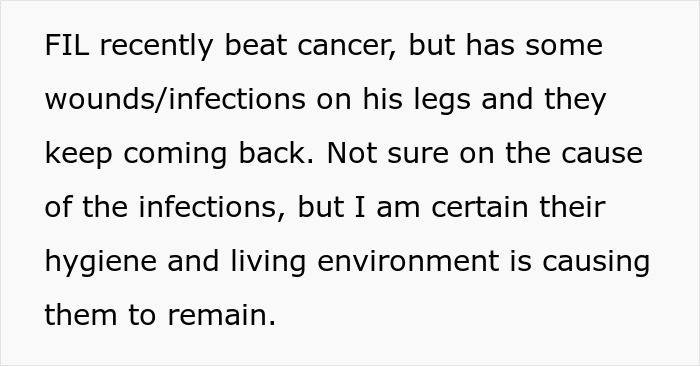

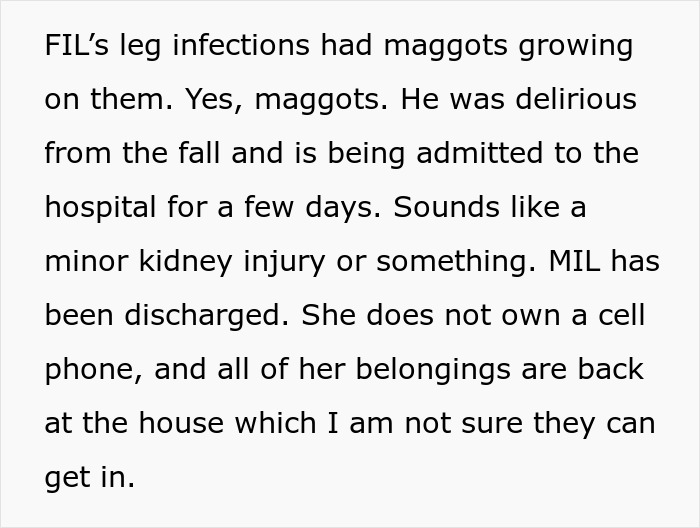

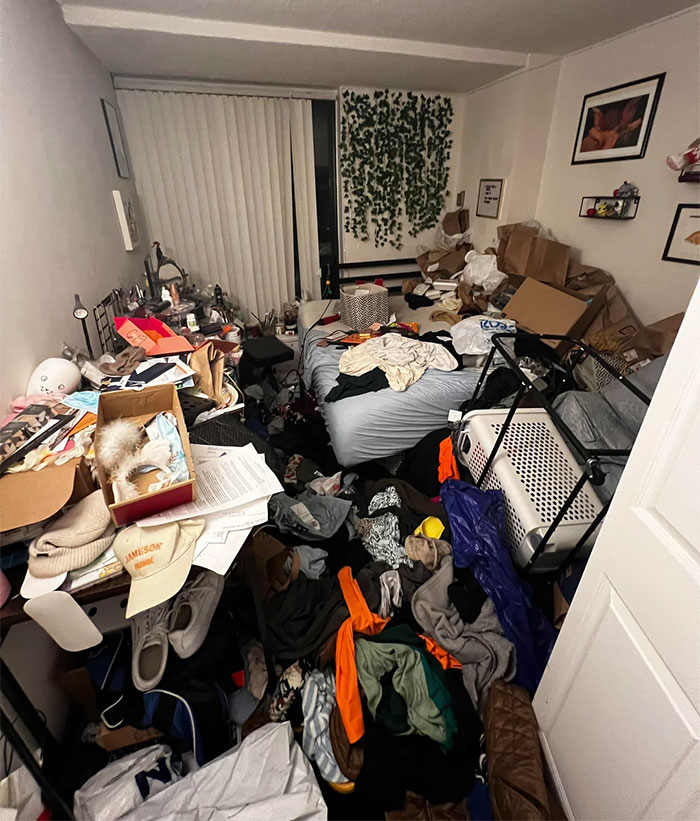
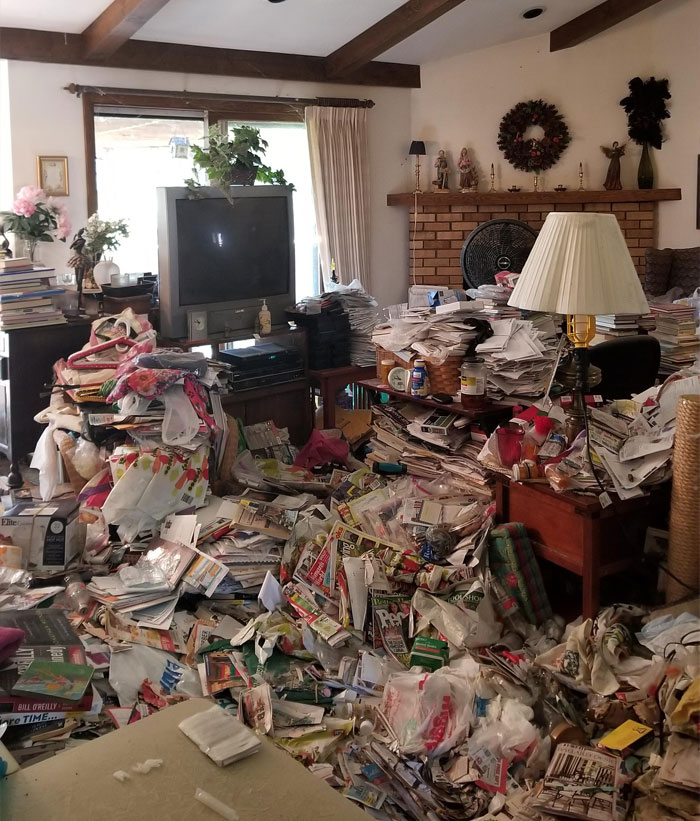

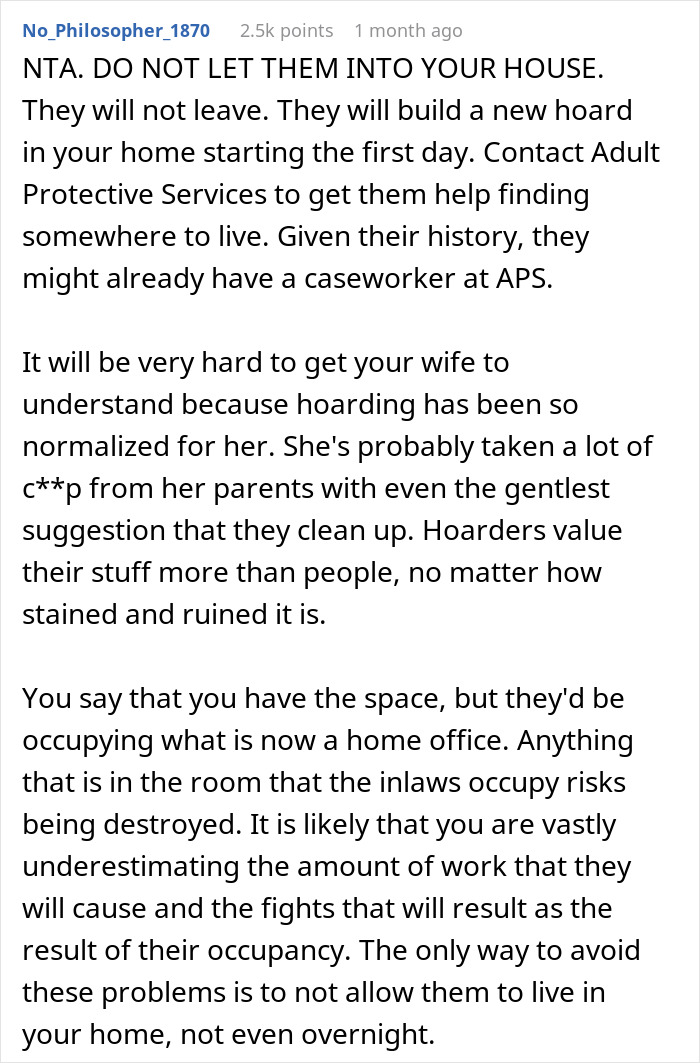



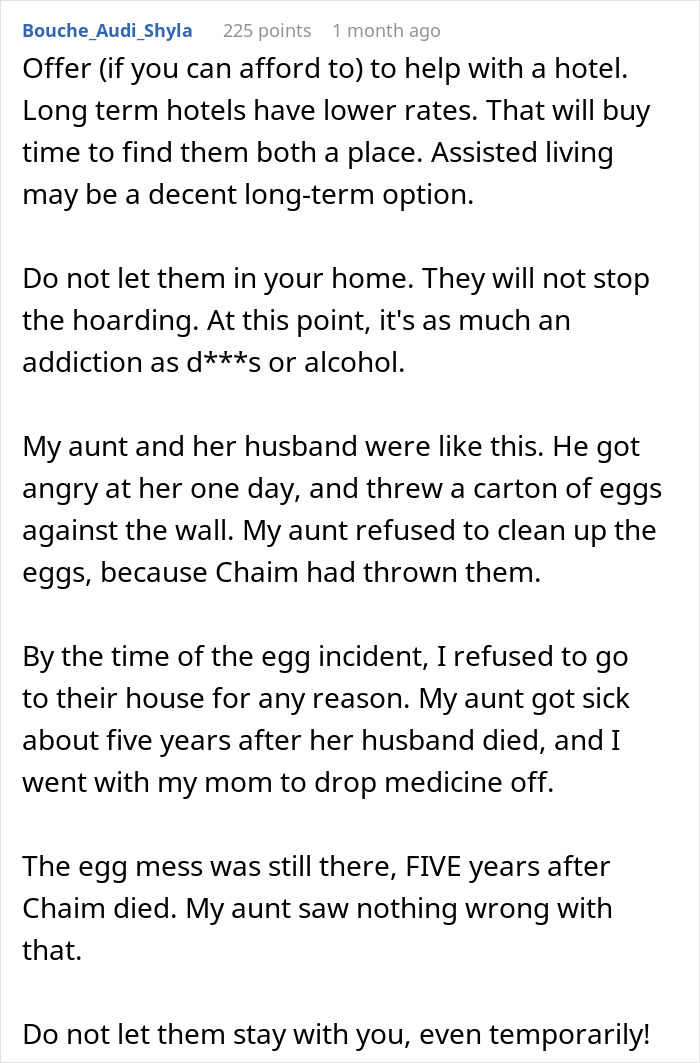

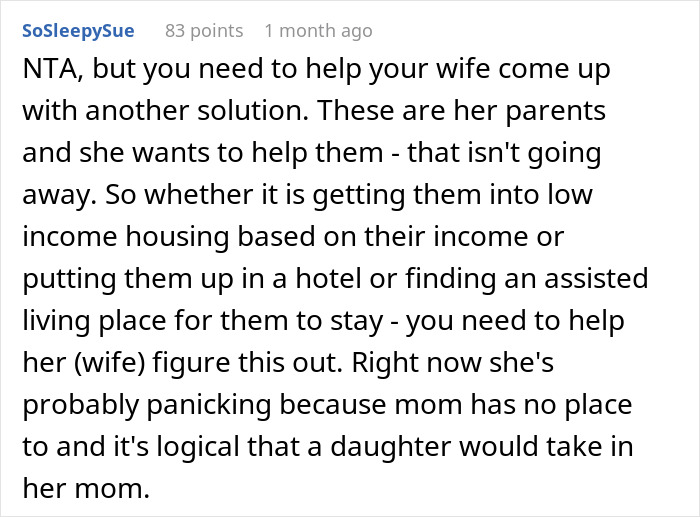
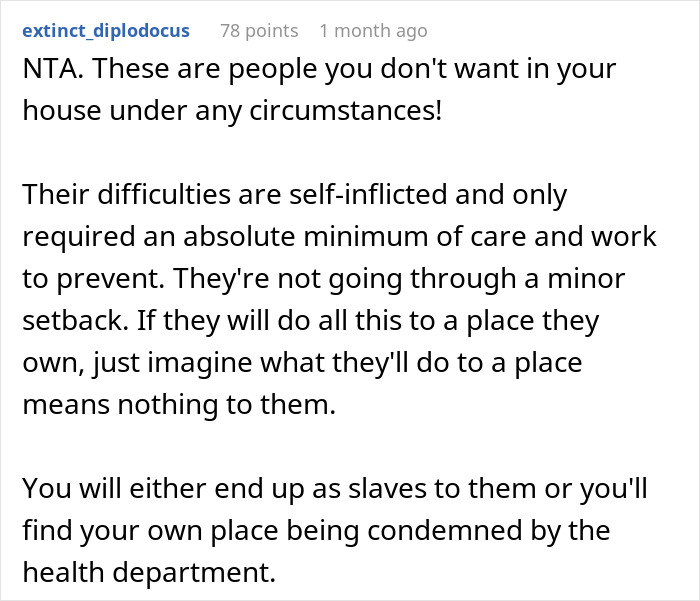
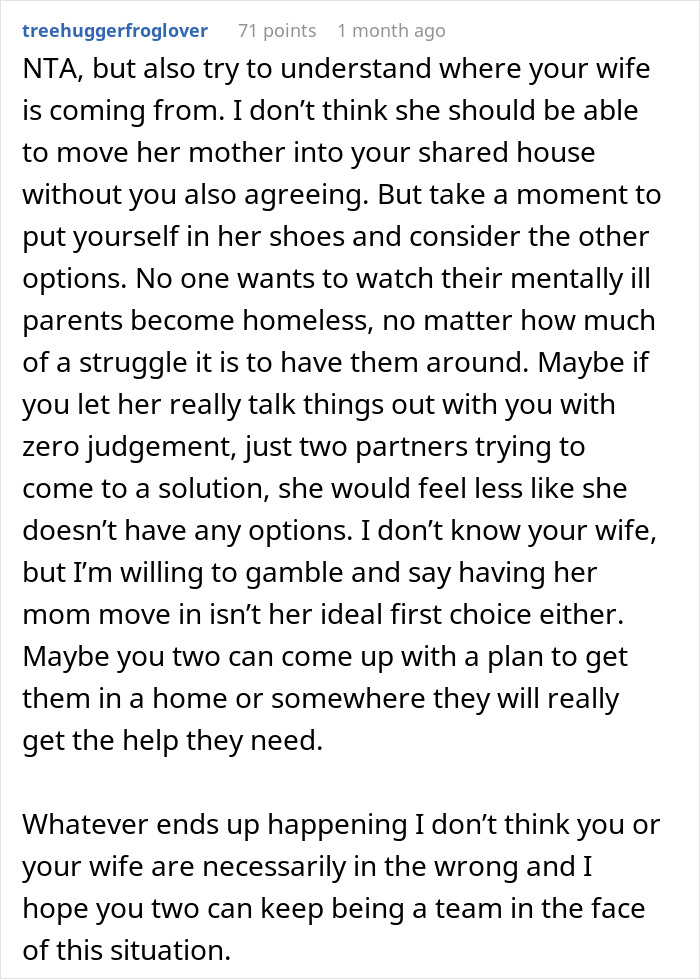



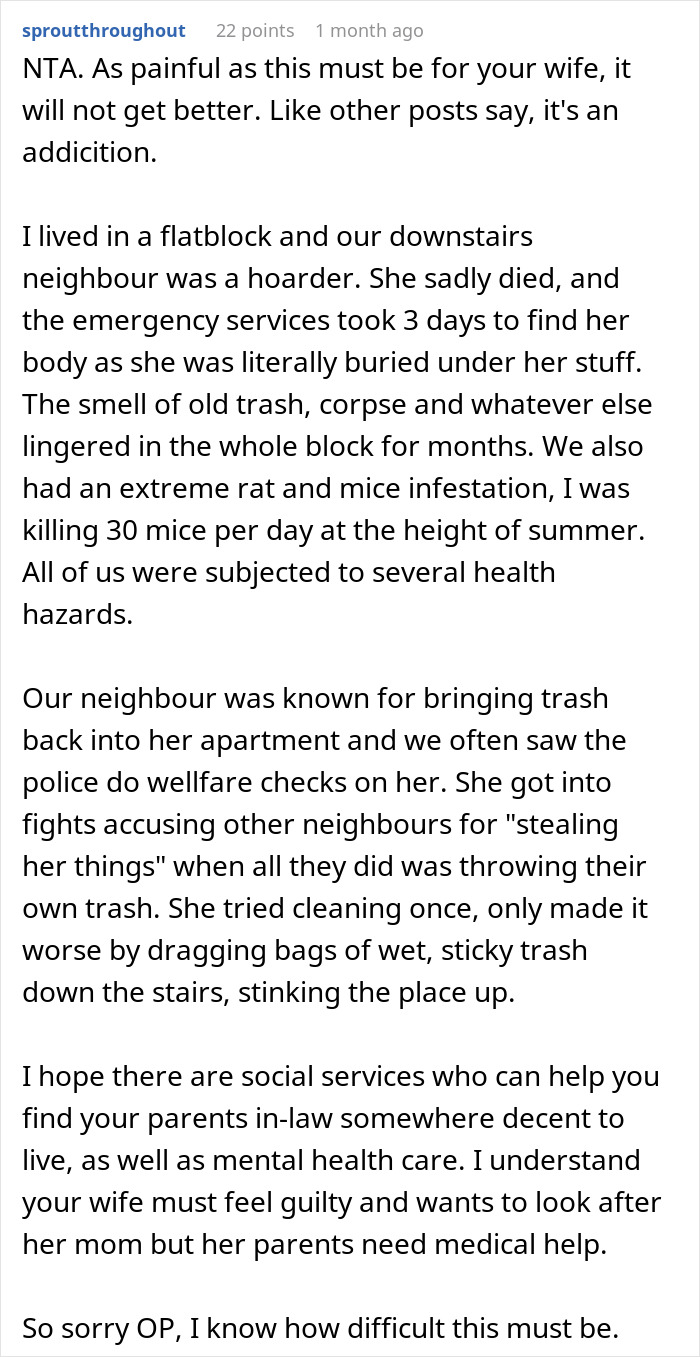
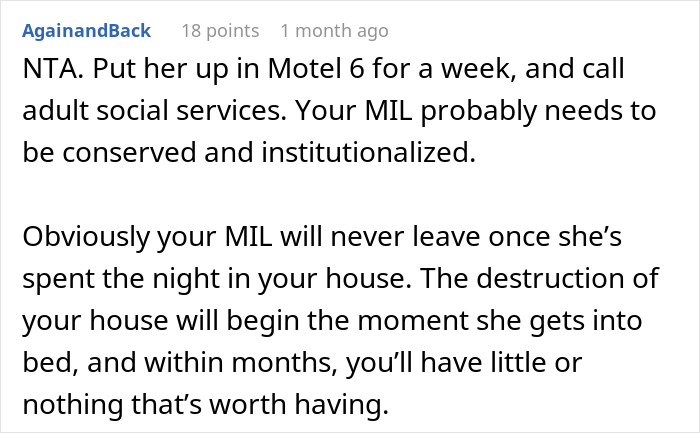


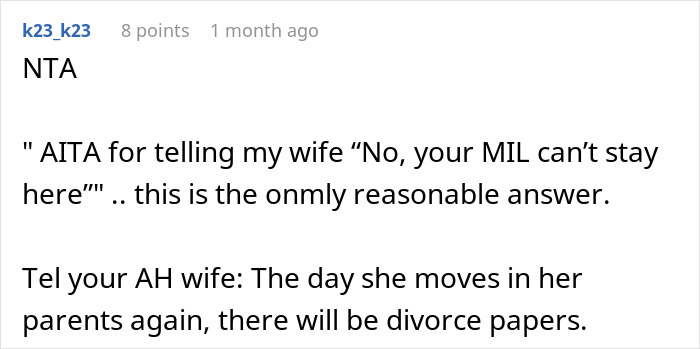
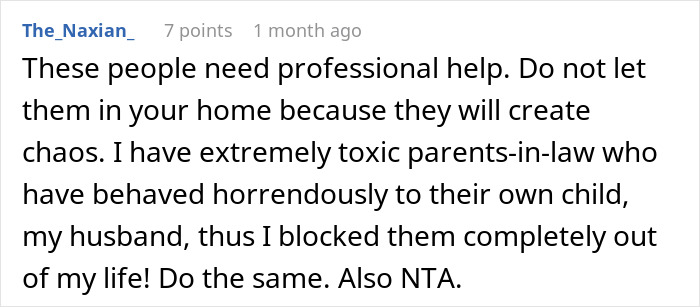

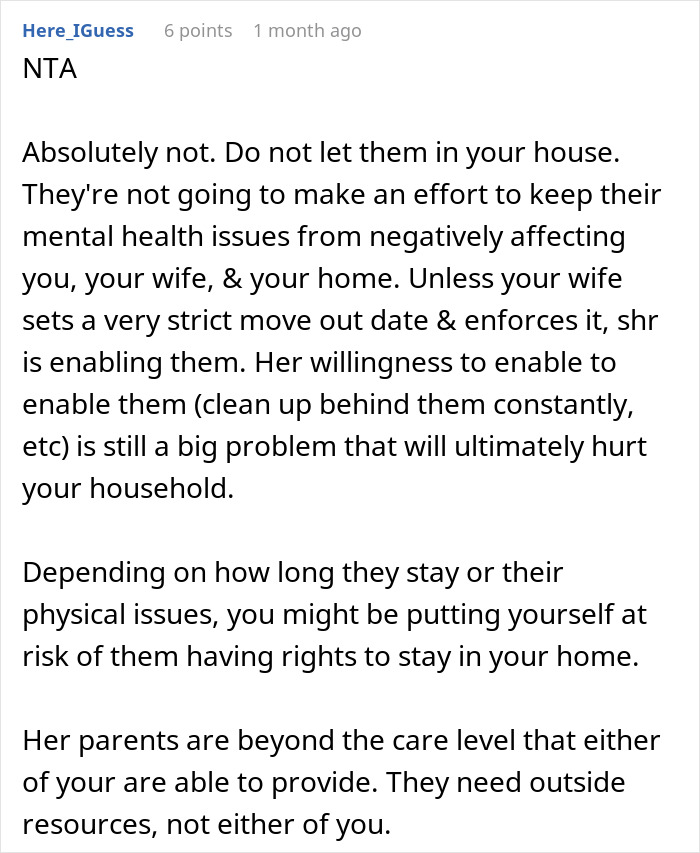
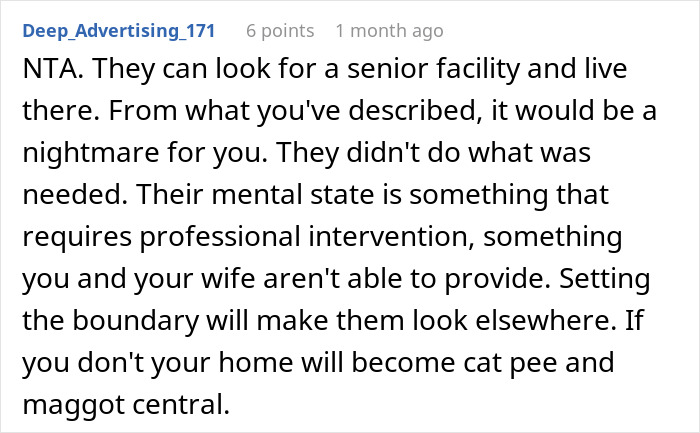










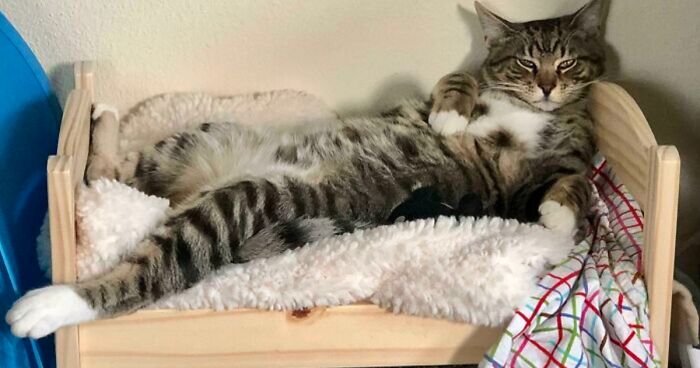



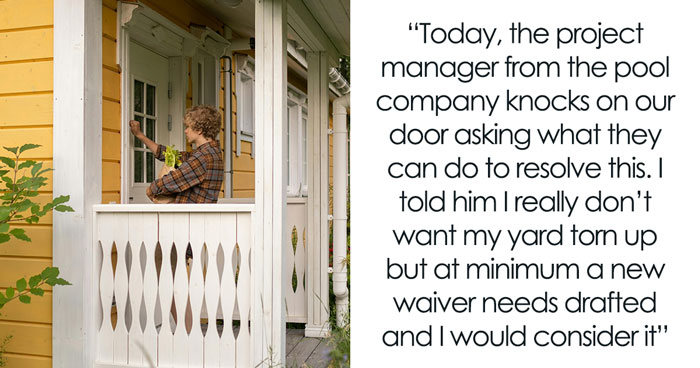
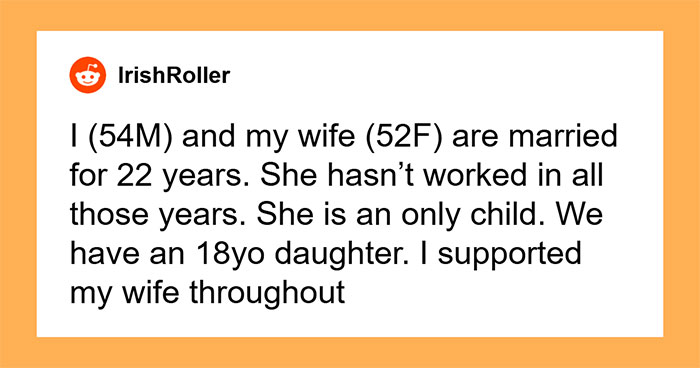

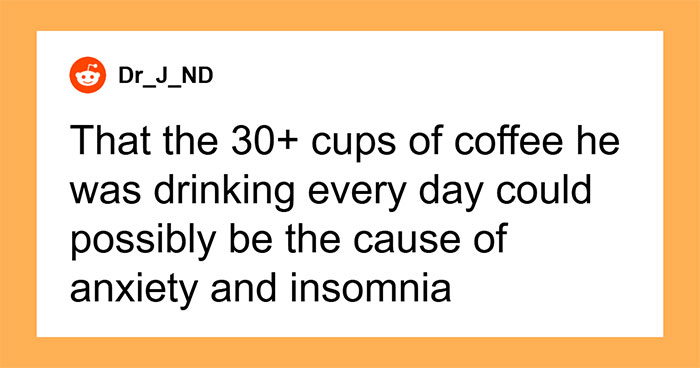
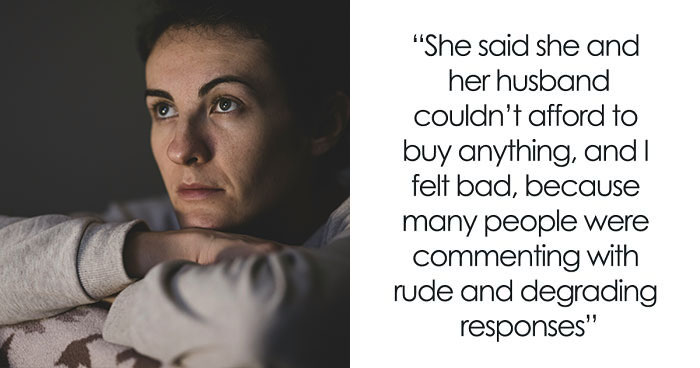




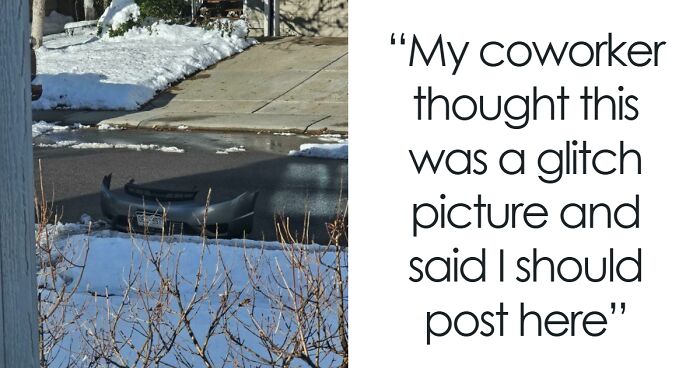

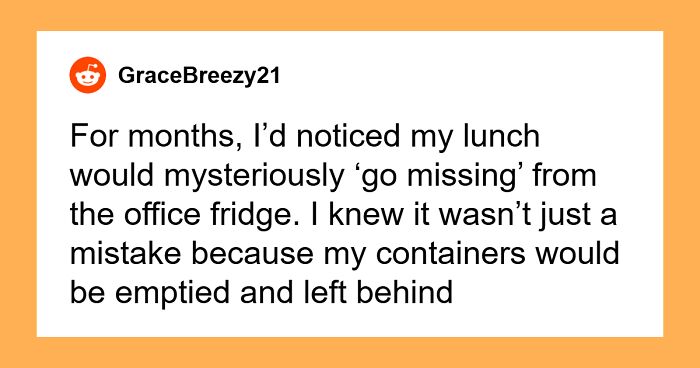
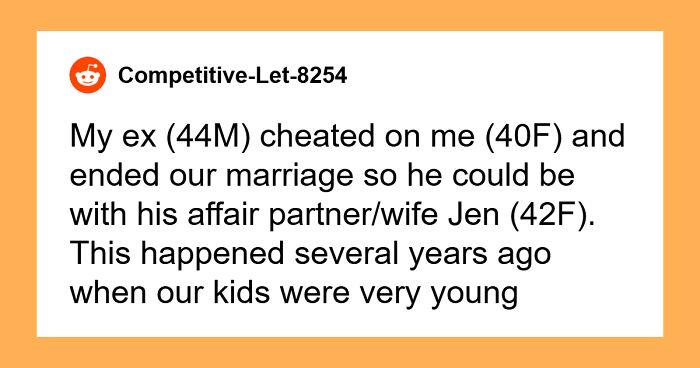


36
18